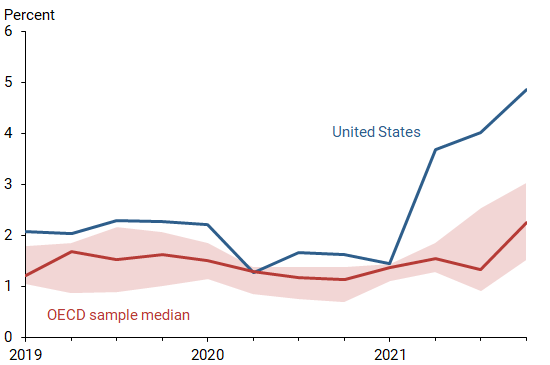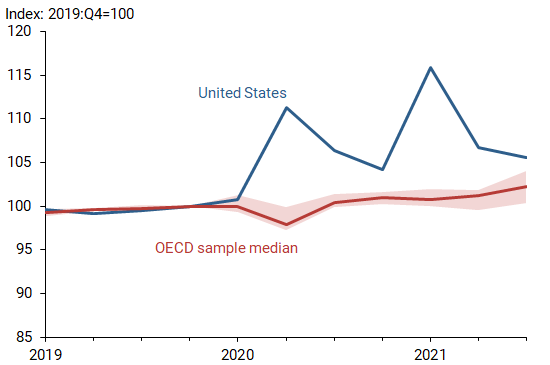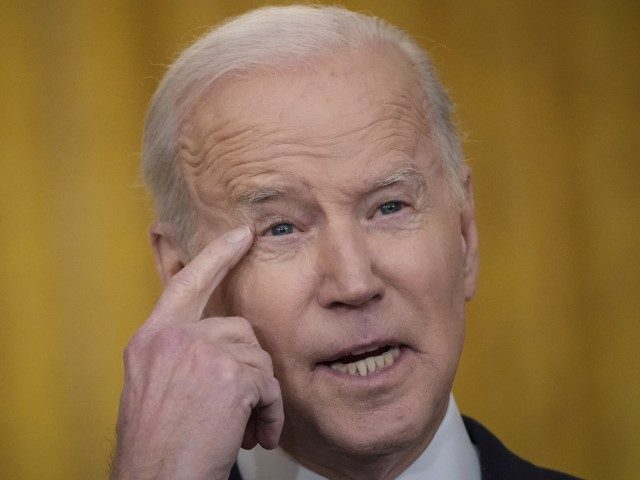Who is to blame for high inflation?
A paper from the San Francisco Fed pins much of the blame on the Biden administration’s big spending.
“Fiscal support measures designed to counteract the severity of the pandemic’s economic effect may have contributed to this divergence by raising inflation about 3 percentage points by the end of 2021,” economists Oscar Jordana, Celeste Liu, Fernanda Nechio, and Fabian Rivera-Reyes wrote in the weekly Economic Letter published by the Federal Reserve Bank of San Francisco on Monday.
The San Fran Fed economists note that while inflation is high in much of the world, U.S. consumer prices have surged more than peers. And the tightness of the U.S. labor market, spurred by huge deficit spending bills that pumped up U.S. household incomes, likely explain the difference.
The core Consumer Price Index—which excludes energy and food prices—started 2021 rising at a pace below two percent a year. By the end of the year, core CPI was running above five percent on an annual basis. The pace of inflation in the rest of the developed world was much slower.

The difference is that the U.S. pushed through two huge spending measures that spiked real disposable income, the bipartisan CARES Act of March 20120 and the Biden administration’s American Rescue Plan a year later.
“Both Acts resulted in an unprecedented injection of direct assistance with a relatively short duration. In contrast, real disposable personal income for our OECD sample increased only moderately during the pandemic,” the researchers wrote.
The Rescue Plan had a much larger effect than the CARES Act.

The researchers say the income transfers likely contributed about three percentage points to inflation by the end of 2021, although they note that there is a lot of uncertainty around this figure.
Importantly, those three points are almost all of the increase in core CPI in 2021. So the paper is concluding that the spending bills are almost entirely to blame.
The paper refutes a favorite Biden talking point based on an earlier paper by a different group of San Francisco Fed economists. That paper, published back in November of last year and based on data through September, concluded that the American Rescue Plan had only contributed three-tenths of a percentage point to inflation. But that paper was based on the assumption that labor market tightness had peaked in August at 1.25 job vacancies per unemployed person. In February, there were a record 1.8 job vacancies per unemployed person. As a result, those findings are now outdated.
The researchers defended the spending measures as necessary because of the pandemic.
“However, without these spending measures, the economy might have tipped into outright deflation and slower economic growth, the consequences of which would have been harder to manage,” they wrote.
That may be true about the 2020 CARES Act but it is far from the consensus that the American Rescue Plan was necessary. At the time, many prominent Democrat economists—most notably former Treasury Secretary Larry Summers—warned that the 2021 bill was unnecessary and likely to push inflation too high.

COMMENTS
Please let us know if you're having issues with commenting.